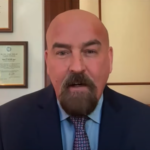The H-1B visa program grants nonimmigrant worker status to up to 65,000 highly skilled individuals annually.
Elon Musk has pledged unwavering support for the H-1B visa program, vowing to go to “war” to defend it. He credited the program for bringing “critical” foreign-born, highly skilled workers to the United States—individuals who he said have played pivotal roles.
“Take a big step back and [expletive],” Musk continued. “I will go to war on this issue the likes of which you cannot possibly comprehend.”
Musk’s defense of the H-1B program comes as debates over immigration policy and workforce competitiveness intensify, with critics arguing the program undermines domestic job opportunities and proponents emphasizing its role in driving innovation and economic growth.
During his first term, President Donald Trump imposed restrictions on foreign worker visas and expressed criticism of the program. However, his 2024 campaign signaled a potential shift, indicating a willingness to grant H-1B visas, or even green cards, to foreign-born workers who graduate from U.S. universities.
In recent days, Musk and Vivek Ramaswamy, who are set to jointly lead Trump’s new Department of Government Efficiency (DOGE), have both ramped up their advocacy of American companies using H-1B visas to hire workers.
“Trump’s election hopefully marks the beginning of a new golden era in America, but only if our culture fully wakes up,” Ramaswamy wrote on X. “A culture that once again prioritizes achievement over normalcy; excellence over mediocrity; nerdiness over conformity; hard work over laziness.”
Musk’s and Ramaswamy’s views have sparked resistance both from factions within Trump’s political base and from conservatives more broadly.
Former U.N. ambassador and presidential candidate Nikki Haley weighed in, criticizing Ramaswamy’s comments and urging Trump to prioritize American workers over foreign-born talent.
Mark Krikorian, executive director of the Center for Immigration Studies, suggested there is common ground between tech industry leaders and immigration restrictionists regarding the H-1B visa program.
“Increasing the share of new immigrants selected based on their skills—described as a ’merit-based’ system—has long been a goal of President Trump,” Kirkorian wrote, adding that an “obvious win-win” would be to eliminate the visa lottery and what he described as “chain-migration” categories and reallocate roughly half of those visas to skilled categories.
“This would result in both an increase in the number and share of new immigrants chosen for their skills and a reduction in the overall level of immigration,” he argued.
The bill, which did not receive a vote in the Senate, aimed to cut levels of legal immigration to the United States by 50 percent, eliminating the current demand-driven model with a merit-based points system that gives points for factors such as education level, existing job offer, or extraordinary achievement such as a Nobel Prize. Canada and Australia use similar merit-based systems.
Other legislative initiatives similar to RAISE have failed to advance.
Jacob Burg contributed to this report.










